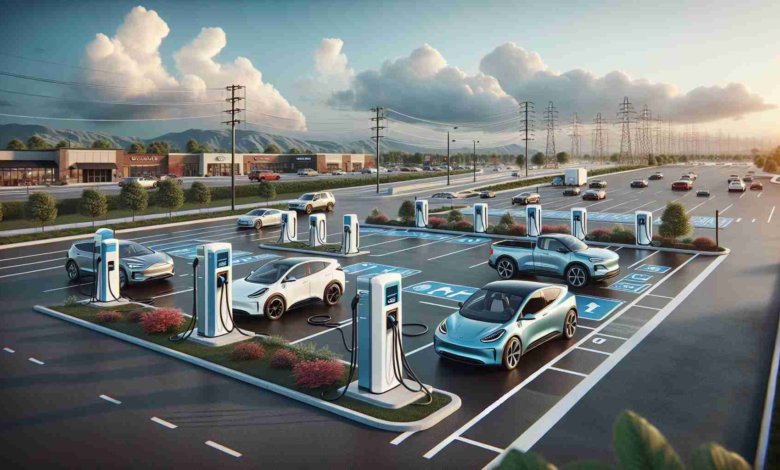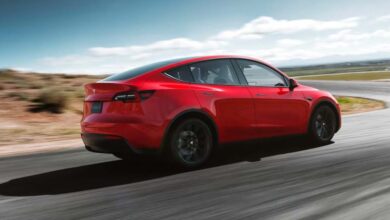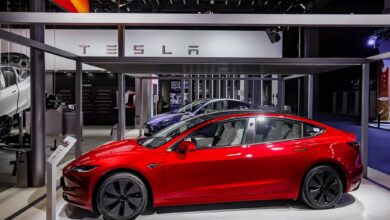Illinois Invests in Electric Vehicle Infrastructure with Over 600 New Charging Ports

Summary: Illinois is making significant strides in bolstering its electric vehicle (EV) infrastructure by installing 643 new EV charging stations. This expansion is part of the state’s initiative to reduce carbon emissions and promote sustainable transportation.
The state of Illinois has taken a progressive step towards achieving a greener future by allocating $25.1 million towards the expansion of its EV charging network. This investment will allow the addition of 643 Direct Current Fast Charging (DCFC) ports across various locations, signaling a robust push for environmentally friendly transportation under the Driving a Cleaner Illinois program.
The Illinois Environmental Protection Agency, under the guidance of director John J. Kim, launched this initiative as a response to the growing demand for electric vehicle accessibility. By drawing on the funds made available due to the Climate and Equitable Jobs Act (CEJA) and the bipartisan Rebuild Illinois capital plan, this move exhibits a concrete commitment towards combating climate change.
In the same year, Illinois utilized part of the $12.6 million Volkswagen Settlement to fund over 300 new EV charging stations, marking a milestone in the state’s transition to sustainable transit solutions. Publicly accessible projects, particularly those in qualified communities, have been prioritized to ensure equity in the growth of EV infrastructure.
Several entities, such as Rivian Automotive and Pilot Travel Centers, have been recognized with grants to facilitate the development of charging stations at key commercial and travel locations, including hotels and gas stations. Educational institutions like community colleges have also been seen as vital points for these installations, broadening the reach of these services.
This expansion runs parallel to national debates on EV adoption and regulations, reflecting a gradual yet steadfast commitment to this crucial transition. While the current vehicle emission guidelines offer a flexible approach for automakers, Illinois’ investment in EV infrastructure underlines its proactive stance in addressing ecological concerns and moving towards a sustainable future.
Industry Overview
The electric vehicle (EV) industry is a rapidly growing sector as countries around the world seek to reduce greenhouse gas emissions and address climate change. Consumer demand for EVs is increasing due to a combination of government incentives, declining battery costs, and rising awareness about the environmental impact of traditional combustion engines. The EV market includes not only vehicle manufacturers but also battery producers, charging station providers, and technology companies working on innovations in EV infrastructure and energy storage.
Market Forecasts
The global EV market is expected to continue its expansion in the coming years. Market research suggests that EV sales could increase significantly, with forecasts indicating that EVs may account for a major percentage of all new car sales by the end of this decade. This growth is supported by improvements in battery technology, more diverse EV offerings, and an expanding charging network. Governments around the world have also set ambitious targets for EV adoption, further bolstering the investment and development in the sector.
Industry Related Issues
Despite the positive trends, the EV industry faces several challenges that could affect its growth trajectory. The supply chain for battery materials such as lithium, cobalt, and nickel is under pressure to meet rising demand, and this can lead to resource scarcity and cost inflation. Additionally, the availability and distribution of charging infrastructure remain key concerns, particularly for urban and rural areas that might be underserved.
Moreover, there are broader economic and policy-related issues, such as the need for regulation supportive of EVs, investments in renewable energy to ensure that the environmental benefits of EVs are fully realized, and managing the transition for industries and workers affected by the decline of traditional automotive manufacturing.
Understanding the broader context of the Illinois initiative highlights the significance of the state’s investments in EV infrastructure, as it not only promotes local sustainability but also contributes to the overarching evolution of transportation systems nationally and globally. Entities considering entering the EV market or those aiming to understand more about EV trends and projections may consider visiting the following links: International Energy Agency or U.S. Environmental Protection Agency for more information on global and U.S. environmental data and projections.
Illinois’ venture into enhancing its EV charging network exemplifies the wider shifts towards clean energy and sustainable transportation options. As the industry continues to develop, such initiatives are likely to play crucial roles in promoting EV adoption, reducing carbon emissions, and moving towards a more sustainable and environmentally responsible future.

Michał Rogucki is a pioneering figure in the field of renewable energy, particularly known for his work on solar power innovations. His research and development efforts have significantly advanced solar panel efficiency and sustainability. Rogucki’s commitment to green energy solutions is also evident in his advocacy for integrating renewable sources into national power grids. His groundbreaking work not only contributes to the scientific community but also plays a crucial role in promoting environmental sustainability and energy independence. Rogucki’s influence extends beyond academia, impacting industry practices and public policy regarding renewable energy.



